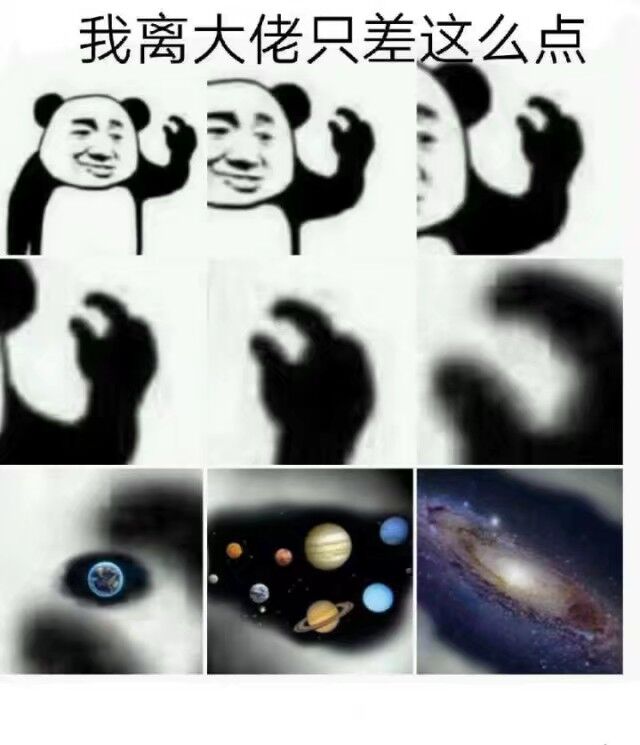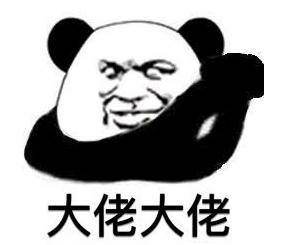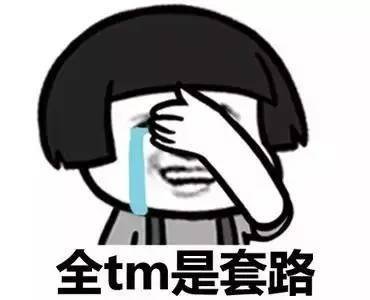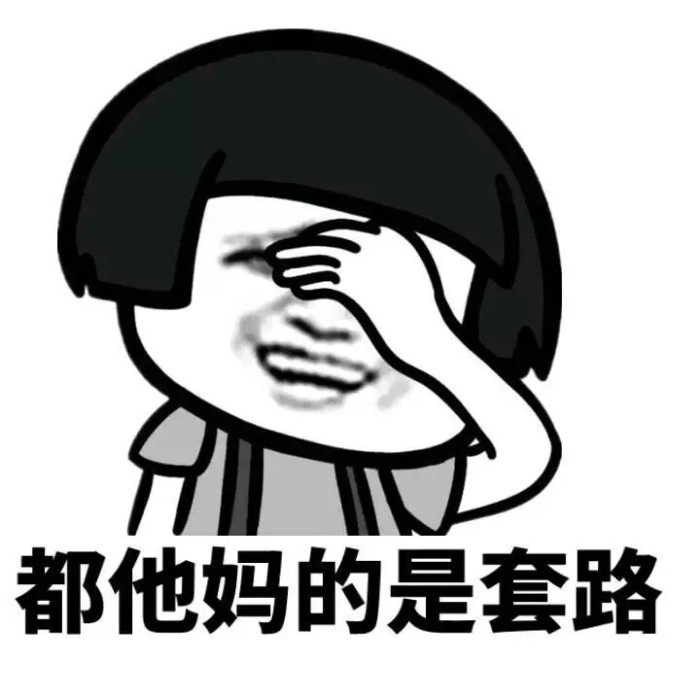Explore RedNote Memes
Browse and download from our collection of 1043 RedNote memes

The term "大佬梗" (Dàlǎo Gěng) literally translates to "Big Boss Meme." It refers to a kind of internet slang or meme that uses the image or concept of a "big boss" or influential person, often with humorous or satirical undertones. It's a popular way to comment on power dynamics, authority, or someone's perceived importance. You might see it used to playfully mock a situation or a person who is acting like a 'big shot'.
This meme, rooted in internet culture, is typically used to express admiration or respect for someone. The exaggerated figure in the image is shown in an over-the-top bowing posture, accompanied by the text 'Boss! It's the Boss!' indicating extreme reverence or awe. This meme is frequently used in online chats, when someone demonstrates exceptional skill or authority, others use it to express their respect or playful mockery.

I'm this close to becoming a guru!
This meme humorously illustrates the gap between an individual and becoming a "big shot" through a series of contrasts. From simple hand gestures to the vastness of the cosmos, it suggests the immense distance between ordinary and extraordinary. It conveys a self-deprecating and humorous sentiment, often used to playfully acknowledge the significant distance one has to go, but expressed in a lighthearted way.

Big Shot, huh?
This meme shows a simple line drawing of a figure with a somewhat helpless or self-deprecating expression. The text above reads, 'Maybe this is what a guru looks like,' and it's typically used to express a tone of self-mockery or lighthearted banter. It's used when you or someone else encounters something seemingly complex or difficult to understand, humorously implying that you or they might be a 'guru' (i.e., an expert or authority), but in reality might just be feeling helpless or clueless. This type of meme is often used in online chats or social media to add fun and humor to conversations.

Humbly bowing to the masters!
This meme features a stick figure kneeling with hands clasped in prayer, displaying a devout expression. It's commonly used to express admiration and worship for someone or something. Originating from internet culture, it's frequently found on forums and social media platforms. Users employ this meme to convey their respect when appreciating someone's achievements or statements. It communicates a humorous yet sincere emotion, serving as both an acknowledgment of the other person and a bit of self-deprecating humor.

Big shot, big shot!
This meme features a panda with a very serious and confident expression. It's typically used to describe someone who is incredibly skilled or impressive. Originating from Chinese internet culture, it's often employed to playfully tease or praise someone for their outstanding abilities. Common uses include friendly banter and social media interactions.

Big Boss! Big Boss!
This meme features a panda confidently waving with one paw, sporting a humorous expression. In Chinese internet culture, '大佬' (dà lǎo) is often used to refer to someone who is very skilled or authoritative in a certain area. This meme is commonly used to express respect or playful teasing, especially in online communities, when someone demonstrates impressive skills or achievements.

Strategy, routine, or a set pattern.
This meme shows a panda holding a small flag with an exaggerated expression, seemingly guiding or directing. The term '套路' (tàolù) in Chinese internet culture often refers to a fixed pattern or strategy, sometimes with a negative connotation implying deception or manipulation. This meme could be used to express helplessness or mockery towards a situation or behavior, suggesting that everything is following a predetermined pattern, lacking originality or authenticity.

A predictable pattern or routine.
This meme shows a crying figure with the text 'It's all a game/scam/routine'. This meme, originating from Chinese internet culture, is often used to express feelings of helplessness or being deceived about a situation or behavior. It conveys a sense of being tricked or manipulated, usually used in banter among friends or to express frustration with a situation. It's used in scenarios such as when something isn't as simple as it seems or when you feel cheated by someone or something.

Strategy. A plan, often with a hint of the predictable. 😉
This meme depicts a cartoon character with their facepalmed, expressing frustration or embarrassment. It's commonly used to convey a sense of helplessness or being tricked. Rooted in internet culture, this meme often describes someone being outsmarted or deceived. Use cases include playful banter among friends, expressing discontent, or a sense of resignation.

Master of the Game
This meme features a cartoon character holding a drink with a confident expression. The text 'Young in age, but seasoned in tricks' suggests that despite being young, this character has accumulated a wealth of experience and skills. This meme is often used to playfully tease those who, despite their youth, are very adept at handling various situations, carrying a humorous and ironic tone.

A well-executed strategy resonates with people.
This meme shows a cartoon character wearing an ancient hat and holding a pinecone, with the text saying, 'Sincere affection never lasts, it's always the schemes that win hearts.' This phrase expresses a dissatisfaction with reality and a bit of a jest, meaning that genuine emotions often fail to hold people, while those who use tricks and schemes succeed in winning them over. This expression has a satirical and humorous tone, often used to poke fun at the complexities and helplessness in interpersonal relationships.

That's quite the elaborate scheme.
This meme shows a cartoon character kneeling on the ground, looking sad, with tears streaming down their face. The caption reads, 'I'm so innocent, but your schemes are so deep.' This meme originates from Chinese internet culture and is often used to express dissatisfaction or helplessness towards others' cunning or deceitful behavior. It conveys a sense of sadness and resignation after being tricked. In conversations, this meme can be used to respond to someone's sly actions or to self-deprecate after being played. It's typically used in banter among friends or as a satire on certain social phenomena.